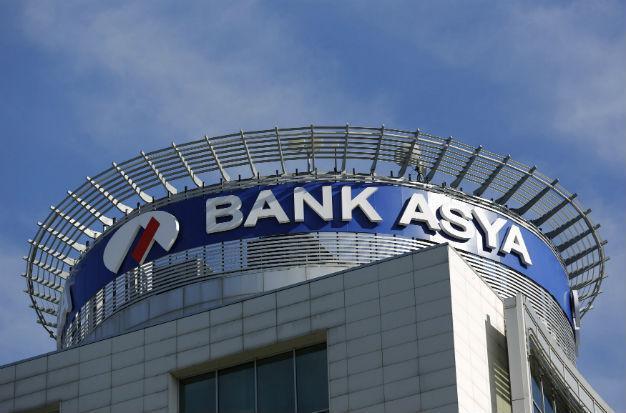State ‘may sell’ Bank Asya
ANKARA

REUTERS photo
Bank Asya, a bank under government control founded by followers of self-exiled Islamic scholar Fethullah Gülen, will be liquidated if a buyer was not found within three months, Turkey’s State Deposit Insurance Fund (TMSF) said on March 1, as the seized media companies of the Gülen-linked İpek Koza group closed.
“Within the framework of the existing legal situation, the return of the bank to its shareholders is not possible,” the TMSF said, adding that it had given the bank a three-month deadline from Feb. 29 to find a buyer or be merged.
“If this is not possible, its liquidation will come on to the agenda,” the TMSF said.
Last week, TMSF chairman told reporters it was in talks to sell the bank.
The TMSF said there is currently no “temporary management” at the bank.
The government seized the assets of the Islamic lender last May, saying its financial structure and management presented a threat to the financial system.
Turkish President Recep Tayyip Erdoğan and the government accuse Gülen, a former ally, of trying to overthrow the government by building a network of supporters in the judiciary, police and media.
Gülen, whose adherents have run schools, broadcasters and newspapers, has lived in self-imposed exile in the United States for more than a decade.
Turkish authorities have recently shut down media businesses seized last year from Koza Ipek Holding, a conglomerate linked to Gülen, according to a filing to the stock exchange on Feb. 29.
The state seized Koza İpek and its media outlets, including the newspaper Bugün and television station Kanalturk, in October on suspicion of financial irregularities, prompting criticism from rights groups in Turkey and abroad.
“Operations were halted due to constant losses and the depletion of capital, while [the firms’] corporate entities will be retained,” the stock exchange filing stated.
Erhan Başyurt, Bugün’s former editor-in-chief until the state takeover, said the media business had a valuation of $200 million in 2015 and that the new management had shown investments, including acquisitions, as losses.
Bugün had a circulation of 110,000 which has now fallen to less than 18,000, most of which are giveaways, Basyurt told Reuters.
Bugün and Kanalturk’s websites were still online, but appeared to have stopped updating news on Feb. 29.
Once critical of Erdoğan, Bugün and sister paper Millet turned pro-government the day after state-appointed management sacked most of the staff just days before the Nov. 1, 2015, election.
